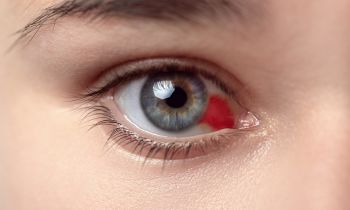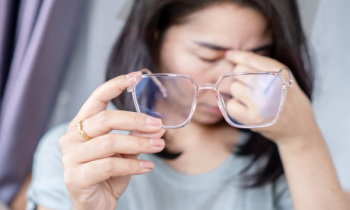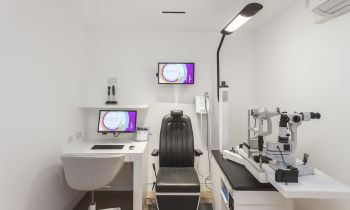Cloudy Eyes
Mar 29, 2024 - Eye Care
What Are The Symptoms For Eye Migraines?
Feb 19, 2024 - Eye Care
Discover the symptoms, causes, and treatment options for retinal migraines. Learn how to identify and manage this condition for better eye health.
What Are Varifocal Glasses
Feb 29, 2024 - Glasses & Sunglasses
Discover what varifocal glasses are, how they work, who needs them, and how to choose the right pair. Learn more about varifocal glasses today!
Can Astigmatism Be Corrected?
Feb 14, 2024 - Eye Tests
Discover how astigmatism can be corrected with various treatment options. Learn about types, causes, diagnosis, and managing tips. Find clarity for your vision.
How do I know if I need glasses
Feb 7, 2024 - Eye Care
10 signs that might mean it’s time to get glasses! From blurry vision to eye strain, find valuable insights to assess your eyesight and prioritise your visual health.
What to Do About a Burst Blood Vessel in Your Eye?
Jan 18, 2024 - Eye Care
Learn how to manage a burst blood vessel in your eye with our comprehensive guide. Quick insights, effective remedies, and expert advice.
What Causes Blurred Vision
Jan 10, 2024 - Eye Care
Uncover causes of blurred vision & empower yourself. Explore cataracts, glaucoma, systemic impacts, treatments, and proactive steps for clear vision.
Itchy Eyes – Causes and Treatment
Jan 5, 2024 - Eye Care
Explore the causes of itchy eyes, from environmental factors to systemic issues. Learn effective treatments and preventive steps for optimal eye health. Discover more!
Hear the world in full colour with Leightons
Mar 13, 2024 - Hearing Care
Without light, we have no colour. And without sound, we have no connection. Our hearing and sight are often considered as two separate entities, yet they are linked: a life without full colour or connection is a very dull place to be indeed.
Brighten Up Your Look: Our Top Glasses for the Spring Season
Feb 28, 2024 - Glasses & Sunglasses
As we begin to leave the colder months behind us, Spring is in sight, and with it, that welcome burst of energy and positivity as the world of colour slowly comes to life. So now is the perfect time to find out how you can use the power of colour to punctuate your eyewear wardrobe with our top picks of the season.
Your Guide to Types of Eye Tests
Jan 29, 2024 - Eye Tests
Your ultimate guide to 13 eye tests and more. Elevate your eye health understanding for clearer vision. Start your journey to better eyesight now!













